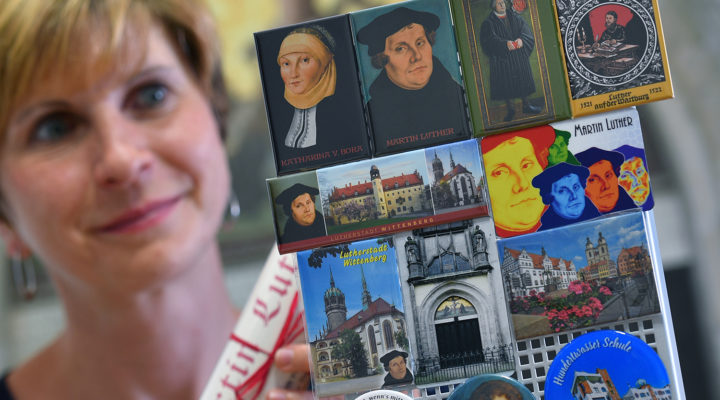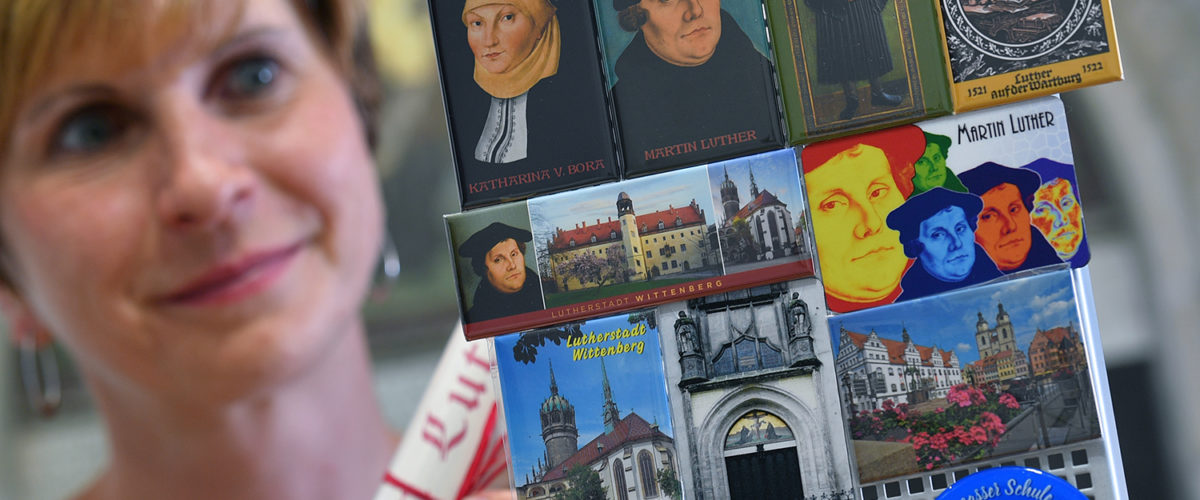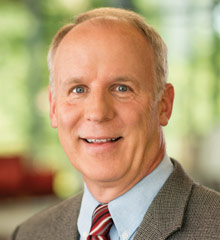Many Christians — especially in the United States — are struggling with their Protestant identity these days.
Articles and blogs abound on the topic. The religiously unaffiliated don’t resonate with the concept of Christianity defined by a religious revolution sparked in the 1500s, some say. Former churchgoers — known sometimes as the “dones” — may have negative feelings with the term.
“Protestant” just isn’t relevant in a post-Christian culture. Best just to drop it, some say.
But Lutherans aren’t saying that. Their very name, after all, reflects the man whose writings and actions gave birth to the Protestant Reformation.
And they certainly aren’t going to disparage the title in the months leading up to the 500th anniversary of the Protestant Reformation in 2017, says Mark Granquist, an associate professor in the history of Christianity at Luther Seminary in St. Paul, Minn.
Granquist knows his stuff about Lutherans. He’s editor of the Journal of the Lutheran Historical Conference and is the author of the 2015 book Lutherans in America: A new History.
And, he’s Lutheran.
Granquist spared some time for Baptist News Global recently to offer insight into what makes Lutherans tick and to argue why being Protestant is still a pretty big deal.
What makes Lutherans Lutheran?
The general rule of thumb is we are a creedal church and so we have the ecumenical creeds. We also hold to a series of documents that were developed in the 16th century … pushed together in the Book of Concord. And the Augsburg Confession is normative. Usually Lutherans are determined by at least their acceptance of the Augsburg Confession of 1630. Some churches don’t call themselves Lutheran. For example, in Germany the Evangelical Church of Germany would be considered Lutheran.
How important is the 500th anniversary of the Protestant Reformation to Lutherans?
We’re all pretty excited about it — in a very calm Lutheran manner. Anniversaries tend to focus your questions of identity. We are trying to celebrate it in a way that doesn’t denigrate anybody else. We are not emphasizing that we split from the Catholics or that we went in a separate direction, because Catholics and Lutherans have made a lot of gains in last 50 years.
Do you get the idea that Lutherans are really the only ones making a big deal about the anniversary?
We know it’s not as big a deal to other groups, but I don’t know that it’s not important to them. They may not be celebrating but they’re still Protestants.
Is the Reformation a common topic in Lutheran churches?
In our worship calendar, one of the things we have every year is that we celebrate the last Sunday in October as Reformation Sunday. … For the 500th [anniversary] there will be a lot of activities all over the place, including special events in Minneapolis, Chicago and St. Louis. Most congregations will do something.
When are children and new people first introduced to these Reformation-related topics?
The big point at which they get this is in confirmation and instruction. For Lutherans there is a series of educational classes for youth, usually in the sixth-to-ninth grades, depending on the congregation. One of the things included in that, is an intensive study of Luther’s Small Catechism. So the basic theological elements of Lutheranism would be introduced to kids at that point.
What inspiration or practical lessons are there in the Reformation for Christians and churches today?
Things like the centrality of the “Solas”: faith alone, scripture alone, justification of faith by grace, Those theological elements would be key. The idea of the priesthood of all believers, that the individual person comes to faith through the grace of God. … Those are the key ideas that really shaped all of Protestantism, not just the Lutheran church. These things are in the DNA of what Protestants are.



